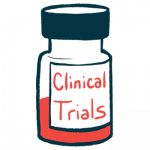The U.S. Food and Drug Administration (FDA) has granted orphan drug designation to Nammi Therapeutics’ lead immunotherapy candidate QXL138AM for multiple myeloma. The first-in-class therapy is designed to kill targeted cancer cells without the “significant toxicities” of other treatments also based on the interferon-alpha (INF-alpha) protein, Nammi said in a press release. “By reducing systemic…
Category: <span>Blog</span>
New VirtuALZ Program Aims to Offer Caregiver Support
Caring for a loved one with Alzheimer’s disease (AD) can be overwhelming. To help ease the caregiver burden — and ultimately benefit patients — a Florida-based company called VirtuALZ is offering a new virtual support program. Crafted specifically to support caregivers of patients who have Alzheimer’s and related dementias, VirtuALZ’s program uses calls, texts, and…
Brain Health Academy Will Offer Wellness Guidance to Professionals
UsAgainstAlzheimer’s is preparing to launch free online courses – The Brain Health Academy – teaching health and wellness professionals how to help people reduce the risk of Alzheimer’s and dementia. Developed in partnership with the American Heart Association, The American College of Lifestyle Medicine, and the Centers for Disease Control and Prevention, the six-part course…
CYT-338 Shows Anticancer Activity in Preclinical Tests
CYT-338, an investigational myeloma therapy designed to simultaneously bind to cancer cells and activate immune cells called natural killer cells, has shown promising anti-cancer activity in preclinical studies. A team led by scientists at Cytovia Therapeutics, the company developing CYT-338, will present the findings in a poster this month at the European Hematology Association’s 2022…
Tau-targeting Treatment Slows Cognitive, Functional Declines: Trial
Alzheimer’s patients given the experimental tau-targeting therapy HMTM in a Phase 3 clinical trial experienced a substantially slower decline in cognitive and functional measures than would be expected based on published research, according to new findings announced by HMTM’s developer TauRx Pharmaceuticals. TauRx expects these results will support applications to gain regulatory approvals of HMTM…
New Community-driven Model Aims to Improve Alzheimer’s Screening
An innovative new project in Toronto will combine optometry and community-based cognitive testing to improve Alzheimer’s screening and enable the early detection of the progressive neurodegenerative disorder. The project — launching in Ontario, Canada — will be led by the medical imaging company RetiSpec and the community-based medical center Toronto Memory Program. These collaborators are…
Activities Mark Alzheimer’s and Brain Awareness Month Across June
The start of summer holds the promise of beach trips, barbecues, and vacations, but for people with Alzheimer’s disease and their caregivers, family, and friends, June also means Alzheimer’s and Brain Awareness Month. Monthlong initiatives aim to honor the more than 55 million people living with dementia worldwide, according to Alzheimer’s Disease International. As it does…
C2N Develops Blood Test to Measure Tau Forms in Alzheimer’s Research
C2N Diagnostics has developed a new assay that precisely measures blood levels of four forms of tau, a protein involved in the brain changes observed in Alzheimer’s disease. Called the plasma tau multianalyte assay (p-tau MAA), the test is intended to be used for research purposes only and does not have current approval for use…
CAR T-cell Therapy Safe, Effective in Treatment-resistant Myeloma: Study
A CAR T-cell therapy called CART-ddBCMA that targets the protein BCMA — produced at high levels in myeloma cells — safely led to lasting responses in relapsed and refractory multiple myeloma (RRMM) patients, a Phase 1 study showed. Given the small study size, further trials in larger groups of patients are needed to confirm these…
For Dementia Patients Who May Forget to Stay Hydrated — ‘Jelly Drops’
When Lewis Hornby’s grandmother was rushed to the hospital in 2018, his family feared the worst. Pat Dickinson suffered from dementia, but in this instance it turned out that she was simply dehydrated. Once she got some fluids in her, she bounced back. But what happened to his grandmother gave Hornby an idea about how…











